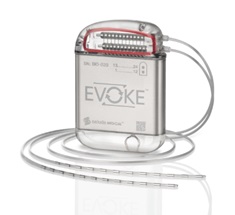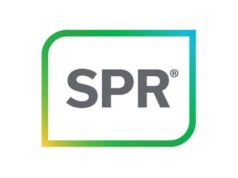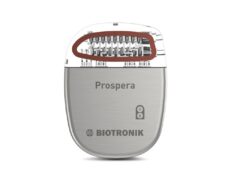
Saluda Medical has announced the recent presentation of new clinical data at the 2025 North American Neuromodulation Society (NANS) annual meeting (30 January–1 February, Orlando, USA). The company states that data from 11 total abstracts and four oral presentations—two of which received the ‘Top Oral Abstract’ award at NANS—underscore the significance of objective neurophysiological measurements in spinal cord stimulation (SCS) with evoked compound action potential (ECAP) dose-controlled closed-loop therapy, and the potential clinical benefits of Saluda’s recently US Food and Drug Administration (FDA)-approved automated patient programming platform, Eva.
One abstract, titled, ‘Novel automated platform to upgrade SCS programming experience from subjective to objective: results from a prospective, dose-controlled closed-loop clinical study’, and presented by Ajay Antony (The Orthopaedic Institute, Gainesville, USA) at NANS 2025, revealed that 94% of all programming sessions using Eva successfully generated a closed-loop programme. In addition, a <13-minute median time to generate each patient-specific automated programme, and a rate of ≥90% of patients being satisfied or very satisfied with the automated programming platform experience, were reported.
The first of two ‘Top Oral Abstract’ winners—presented by Jason Pope (Evolve Restorative Center, Santa Rosa, USA)—was titled, ‘ECAP study premiere: real-world IDE [investigational device exemption] study showing relationship between physiologic ECAP biomarkers and pain outcomes’. Saluda claims that the ECAP IDE study builds on the company’s EVOKE IDE study and represents “the largest SCS study executed in a real-world cohort”. Across 220 patients, real-world data demonstrated “profound improvement” (≥2 minimum clinically important differences [MCIDs]) across all pain subgroups in the study, including pain associated with failed back surgery syndrome, non-surgical back pain, complex regional pain syndrome, diabetic peripheral neuropathy, and upper limb pain.
The second award-winning abstract, titled, ‘Characterising spinal cord neurophysiology using ECAP dose-controlled closed-loop SCS’, was presented by Harold Nijhuis (St Antonius Hospital, Nieuwegein, The Netherlands). According to Saluda, this study—the first SCS study to objectively characterise differences in cervical and thoracic spinal neurophysiology—demonstrated that significantly higher cervical SCS sensitivity may increase the risk of over- and under-stimulation when using open-loop SCS. The findings also indicated that precise dosing on a pulse-pulse basis using ECAP dose-controlled closed-loop SCS may be necessary for durable long-term outcomes in the cervical spine.
“Saluda is driving a pivotal moment in SCS, where advanced neurophysiological data and automation are redefining the standard of care,” said Jim Schuermann, president and chief executive officer (CEO) of Saluda. “We believe the next generation of SCS is here, and it’s built on the foundation of objective science, precision and personalised therapy that will continue to elevate patient care for years to come.”
“What stands out to me about these results is the newfound clarity in understanding the relationship between ECAP biomarkers and pain outcomes,” Pope added. “These real-world data from the largest SCS IDE study give us confidence that tailored therapy with the Evoke system can significantly improve pain relief across multiple patient aetiologies we treat in our practices. This kind of personalised, biomarker-driven therapy is leading to other breakthroughs, such as predicting responders and non-responders to therapy and automation of programming to achieve the best relief for our patients.”









